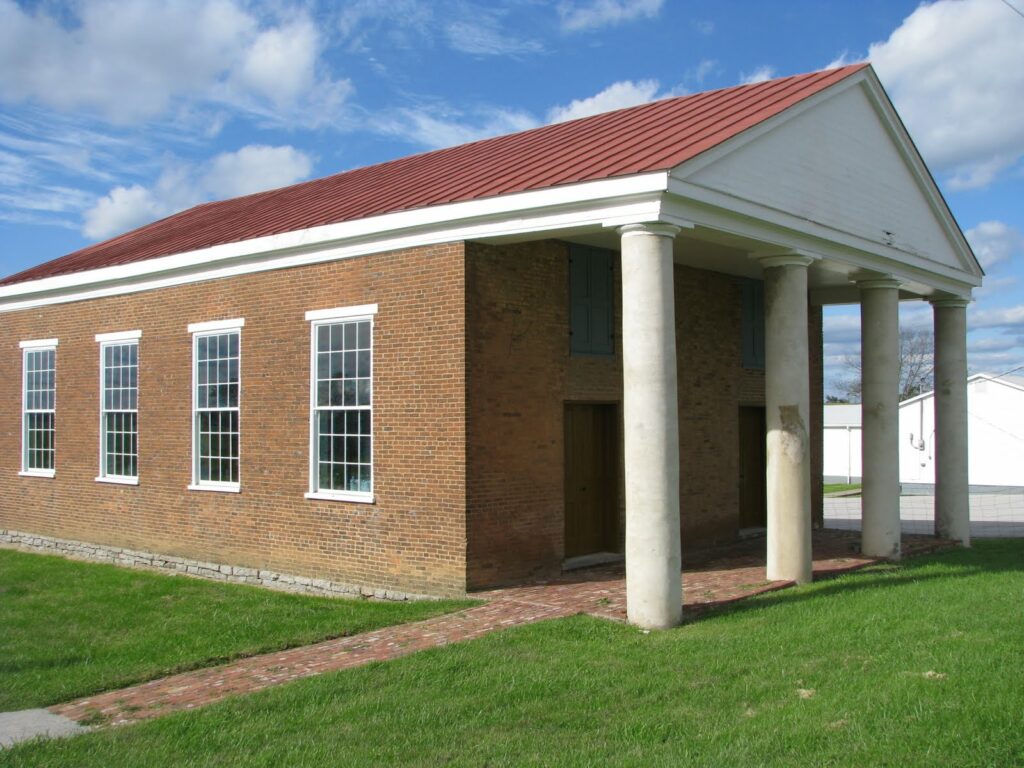 I’m not sure what community in Kentucky has the highest number of churches per capita (if you know, please advise!), but it very well could be Minerva, Kentucky. This Mason County hamlet, with a population of about 250 (as of 1876), has four churches. (According to the new Minerva Baptist Church, there are six churches and 115 people today.)
I’m not sure what community in Kentucky has the highest number of churches per capita (if you know, please advise!), but it very well could be Minerva, Kentucky. This Mason County hamlet, with a population of about 250 (as of 1876), has four churches. (According to the new Minerva Baptist Church, there are six churches and 115 people today.)
The four churches – Baptist, Methodist, Catholic and Full Gospel – are each architecturally unique. The Catholic church is least impressive – a late-20th century brick church. Both the Methodist (built in 1894) and the Full Gospel churches appear to be the quintessential white-siding country churches.
The Baptist Church, though no longer in use, is the most impressive. The church began as a “Traveling Church” in 1793 and the Baptist congregation formed about 1799. Services were held regularly on the site until about 1900. Sold in 1930 for $280 and then used as a tobacco barn, the Bracken Baptist Church structure was completely restored in 2005. Constructed in 1842, this Greek Revival building was added to the National Register in 1983.
On a religious note, the Baptist congregation split on two occasions. The first time was in 1805 (over slavery). The second was in 1829 during the Campbell movement, which was the beginning of many of the Christian Churches/Disciples of Christ churches that are prevalent in Kentucky today. It is curious that a movement which sought church unity was the cause of schism.
Minerva is most notably the birthplace (Dec. 31, 1884) of Supreme Court Justice Stanley F. Reed. Nominated by FDR, Reed was the last Supreme Court justice to not graduate from law school (he outserved the later-nominated Robert Jackson by three years). He served on the High Court from 1938 to 1957 and is the longest-serving Justice in Supreme Court History. One of Reed’s most famous quotes comes from his dissent in Illinois ex rel. McCollum v. Board of Education, 333 U.S. 203 (1948) (first case to declare that a state had violated the Establishment clause): “A rule of law should not be drawn from a figure of speech.” Reed was referring, of course, to the wall of separation between church and state.
